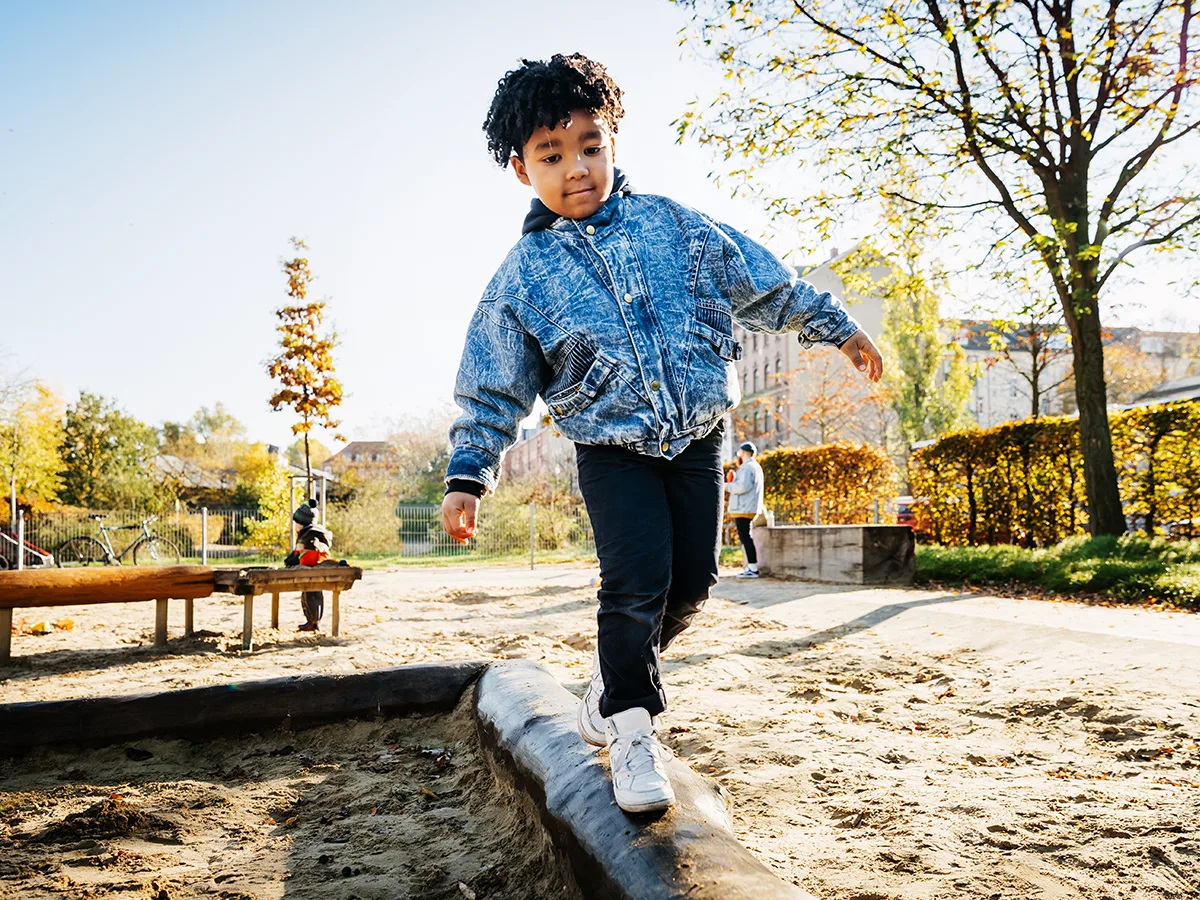
Mind-minded parenting: Does insightful talk about the mind help children bond and learn?
BUT FIRST! Parents, have you seen the awesome Parent University courses we offer, in partnership with Grand Rapids’ own Arbor Circle? If you’re interested in learning more about your child’s brain, check out this course, presented by Laura Vogelsang of Arbor Circle’s Infant/Toddler Developmental Services.
COURSE DESCRIPTION: When your child expresses emotions in challenging ways, do you ever wonder what’s happening in their brain? Laura Vogelsang of Arbor Circle presents on brain development in young children, shedding light on why your child might react to stress and uncertainty with emotional outbursts, and how you can respond.
Parent University also partnered with Arbor Circle to offer a special course all about adverse childhood experiences (ACEs). Dr. Marguerite Morgan LMSW\PhD\CAADC\IMH-E (II), a local expert in the field of ACEs, led the course, which can be viewed here.
COURSE DESCRIPTION: Adverse childhood experiences (ACEs) are stressful or traumatic events that occur during childhood, including abuse and neglect as well as household dysfunctions, such as witnessing domestic violence or growing up with family members who have substance use disorders or a mental illness. These adverse experiences have a profound effect on brain development and overall child development. However, children are resilient. With support from a loving caregiver, they can recover.
Mind-Mindedness and Theory of Mind
Mind-minded parenting is an approach that recognizes the independent thoughts and feelings of children. Parents assume their children’s behavior is meaningful, and tune into their children’s emotions, desires, and interests. They accurately read their children’s communicative cues, and talk with kids about the world of the mind.
The approach is linked with important developmental advantages, like the forging of secure attachment relationships, stronger social skills, and maybe even better self-control.
Is it ever too early to start? Is it ever too early to treat a child as a conversation partner, and look for meaning in what he says or does?

Psychologists Elizabeth Meins and Charles Fernyhough say no. In fact, there’s reason to think that this approach is especially important during a baby’s first year (Meins et al 2012; Cheng et al 2018).
Babies thrive when their parents assume they have minds of their own, and take the time to figure out what their babies are thinking and feeling. In particular, children seem to benefit when they have “mind-minded” parents who communicate accurately about mental and emotional states.
Such parents make what Meins and Fernyhough call “appropriate, mind-minded comments,” and appropriate is the key.
I see you’re bored with that toy, a mother might say.
Does this count as appropriate, mind-minded talk? That depends on whether or not the baby really is bored. If he’s showing signs of interest — gazing at the toy, reaching for it — the comment is not appropriate. To practice mind-minded parenting, caregivers need to do more than talk about thoughts and feelings. They need to make comments that are attuned to what’s really going on.
It’s a crucial distinction, because appropriate, mind-minded talk in early childhood predicts a number of developmental outcomes. Here are the details.
Evidence that mind-minded parenting helps children develop secure attachments
It might seem silly to treat a baby’s babbles as meaningful conversation.
But back in 1998, Elizabeth Meins noticed something: Mothers who did this — mothers who tended to attribute meaning to their children’s early vocalizations — were more likely to have toddlers who were securely attached (Meins 1998).
In subsequent research, Meins and her colleagues watched 6-month-old babies play with their mothers, and tallied examples of spontaneous, mind-related talk (Meins et al 2001). The researchers were particularly interested in appropriate comments, i.e., maternal talk that revealed an accurate understanding of what a baby was really feeling.
Six months later, the researchers tested the babies’ attachment relationships, and they found a clear relationship between parenting and attachment. Mothers who made more frequent, appropriate comments at 6 months were more likely have securely-attached babies at 12 months.
Other studies have confirmed that early mind-minded practices predict attachment security (Laranjo et al 2008; Meins et al 2012). Appropriate mind-minded comments have been linked with secure attachments to fathers as well as mothers (Lundy 2003). They have also been linked with secure attachments to daycare providers.
When researchers in the Netherlands observed three-year-olds at childcare centers, they found that children were more likely to be securely attached to a caregiver if he or she made frequent, mind-minded comments (Colonnesi et al 2017).
Evidence that mind-minded parenting helps kids develop social savvy
In addition to secure attachments, children with mind-minded parents are also more likely to show advanced reasoning about the mental states of other people — what psychologists call “theory of mind” skills. How do researchers measure this?
One important test is the false belief task, which asks a child to distinguish between what’s really true, and what another (mistaken) person believes to be true. For instance, consider this false belief task administered by Meins and Fernyhough (1999). They asked 5-year-olds to watch a puppet show and then answer some questions.
The show began with Charlie the Crocodile alone on the stage. He emptied a milk carton and refilled it with soda pop.
Next, Penny the Penguin arrived. She hadn’t been there to witness Charlie’s actions.
The researchers told children that Penny likes milk, not soda pop. Then they asked kids to predict how Penny would feel when she first saw the milk carton. Would Penny be happy or sad?

Then the researchers asked kids to predict how Penny would feel once she found out the truth. How would Penny feel after she looked inside the carton and found that there was soda pop, not milk, inside?
Some preschoolers correctly predict Penny’s feelings (i.e., that she’d be happy at first, and then disappointed) and these children were more likely to have heard appropriate, mind-minded comments when they were younger.
The results have been replicated by other studies. For example, in one study, researchers observed mothers playing with their 12-month old infants, and noted how often parents made appropriate, mind-minded comments. Then they assessed theory of mind skills when the children were 4 years old. Appropriate mind-minded talk at 12 months predicted a child’s mastery of the false belief task at age 4 (Laranjo et al 2014).
In a similarly-designed study, researchers found that appropriate mind-minded talk in infancy predicted, at 51 months, both a child’s emotion understanding and his or her performance on a false belief task (Centifanti et al 2015).
And other research has shown that a mother’s early use of appropriate, mind-minded comments predicts her child’s mental perspective-taking abilities during the preschool and early primary school years (Meins et al 2003; Taumoepeau and Ruffman 2008; Meins et al 2013; Kirk et al 2015).
Is it really the talk that matters? Or the attitude? Rory Devine and Clair Hughes tackled this question in a recent study of theory of mind development.
The researchers tracked 117 preschoolers and their parents for 13 months. They measured both “parental mental talk” and “parents’ propensity to view children as mental agents” (Devine and Hughes 2017). They also tested children’s understanding of false beliefs.
Which parenting variable had more impact on child outcomes? As it turned out, only the talking — conversing about thoughts and emotions — predicted better theory of mind skills.
What about causation?
These studies report correlations only. They don’t permit us to conclude that mind-minded parenting causes kids to form more secure attachments or develop better theory of mind skills.

Maybe these outcomes reflect certain genes that parents share with their biological children, genes that facilitate the development of all three phenomena — mind-mindedness, attachment security, and early childhood mind-reading.
If so, mind-mindedness isn’t so much the cause of attachment security and early proficiency in the false belief task. It’s a shared effect.
But there is evidence against this.
In the study about daycare mentioned above, preschoolers were not genetically related to their caregivers. Yet the correlation — between mind-minded comments and secure attachment — held (Colonnesi et al 2017).
And a twin study — using the tools of behavioral genetics — found that genetic factors had a negligible impact on the development of theory of mind skills (Hughes et al 2005).
In addition, a number of points argue in favor of children honing mental perspective-taking through exposure to mental talk.
For example, when researchers have tracked the development of children with siblings, they’ve found a telling pattern: Having an older sibling facilitates the development of theory of mind. Having a younger sibling doesn’t. This is what we’d expect if kids learn from the mentalistic language of older, more socially-savvy people when they play (Ruffman et al 1998).
The cross-cultural evidence is also suggestive.
In cultures where talking about mental states is discouraged, children show major lags in the development of theory of mind (Mayer and Träuble 2013; Mayer and Träuble 2014). They get there eventually, but it may take years.
And researchers have conducted at least one randomized, controlled experiment on subject. After obtaining baseline measures of false belief task performance in some 3-year-olds, Heidemarie Lohman and Michael Tomasello divided the children in two groups.
Kids in both groups talked with an adult who showed them some peculiar, deceptive-looking objects, like a pen that took the shape of a flower. But the conversation differed slightly.
In one group, the adult talked to the children about the deceptive nature of the objects, using terms like “think” and “know.” For example, the adult might ask “What do you think this is?…You thought it was a flower….”
In the other group, the adult talked about the objects, but didn’t use mental state terms (“What’s this?…It’s a flower…You can write with it…”)
After these sessions, the researchers re-tested the childrens’ grasp of false beliefs. Kids trained with mental state language performed better on the false belief task. They also showed a better understanding of the distinction between appearance and reality (Lohman and Tomasello 2003).
Other perks: Can mind-minded parenting help kids develop self-control?
At first, it might seem like a leap. But research shows that children who are securely attached tend to develop better self-regulation skills. They are better at controlling their impulses, internalizing rules, and delaying gratification (e.g., Heikamp et al 2013; Bernier et al 2015).
It’s also easy to see how theory of mind skills could contribute to self-control. Being able to understand other minds allows children to perceive intentions and predict behavior. This makes it easier for them to understand how their efforts at self-control may be rewarded.
And learning the language of mental states is useful for self-control. Young children learn to stay on track by talking to themselves — out loud or internally.

So mind-minded parenting may boost self-control indirectly, by fostering secure attachments and theory of mind. It could also help by exposing children to language they can use to manage they impulses and moods.
Is there research in support of these ideas? The question of mind-mindedness and self-control hasn’t been as intensively studied. But the research that does exist is indeed supportive.
For example, in a study tracking Canadian babies, researchers found that mind-minded parenting during infancy predicted better self-regulation in 18 month old toddlers (Bernier et al 2012).
And a more recent study of Chinese children found that mind-minded parenting at 9 months predicted better self-control when children were 2-3 years year old.
In particular, these kids were better at controlling their impulses, and more likely to choose to delay gratification if doing so meant they would get a bigger reward in the future (Cheng et al 2017).
Interestingly, other factors — like parents’ education and income levels — were not predictive. Neither was maternal sensitivity, the tendency to respond promptly to a baby’s physical and emotional needs.
The researchers conclude that mind-minded parenting — including appropriately attuned mental talk — adds something more than “simply perceiving” a child’s needs “and providing material support.” And this may help toddlers develop self-control.
Mind-minded parenting: The takeaway
Some of the behavioral differences we see in families are a reflection of genetic differences. Our genes can make us more or less likely to develop certain skills.
But there is good evidence that parenting and care-giving matters, and this is particularly true for secure attachments and theory of mind skills.
Mind-minded parenting — tuning in, and making insightful comments about mental states — strengthens social bonds and helps children understand the thoughts and feelings of other people. In addition, there is reason to think that mind-minded parenting may help children develop better self-control.
More reading
For more information on related topics, see these articles:
- The social world of newborns: Why babies are born to learn
- The Strange Situation: Is your child securely-attached?
- The benefits of sensitive, responsive parenting
- Teaching self-control: Evidence-based tips
- The Parenting Science guide to parenting styles
- The Parenting Science guide to social cognition and people skills

